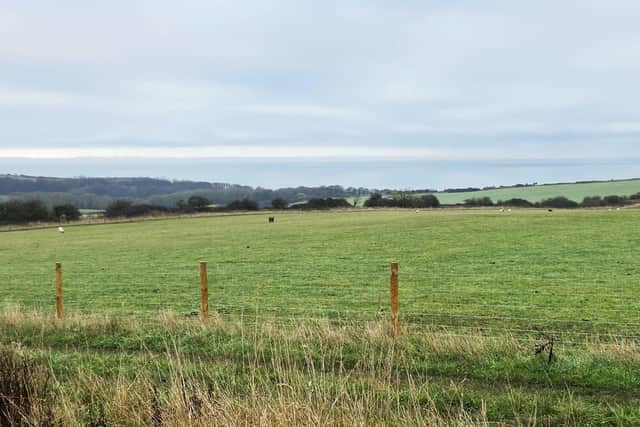Stop cutting buses to rural areas, they provide a vital service to locals - Jayne Dowle
In Easington, East Cleveland, villagers are up in arms because bus services are cutting them off. Ideally, they want the return of the Redcar and Cleveland Council-run clipper-style bus, which stopped outside their homes.
Popular with pensioners, this service was handy for supermarkets Asda and Aldi at the retail park in Skelton, and also served the East Cleveland Primary Care Hospital at Brotton.However, this bus service was withdrawn during the Covid pandemic and has not returned.
Advertisement
Hide AdAdvertisement
Hide AdTo add insult to injury, say the campaigning group, two new scheduled bus services, which will connect with Saltburn train station, the hospital and Skelton, and take in a number of remote East Cleveland communities – but not their own - are due to start in March on a one-year trial basis.


Campaigners say these new routes won’t operate to Easington because the council says they would be deemed to be competing significantly with existing commercial services; these commercial services do run, but involve various changes, and long walks to and from the bus stops.
Most of the campaigners are older people. They are very unhappy that their transport needs are being ignored, trapping them in their own homes.
“We have a lot of pensioners who live at the top of this estate and this bus was vital for them if they needed to go shopping or to the hospital,” Easington resident Patrice Dolden told reporters. “It’s such a struggle for them. It is a disgrace.”
Advertisement
Hide AdAdvertisement
Hide AdThe council’s answer so far is to advise residents to use the Tees Flex ‘demand responsive bus’. However, as one local points out, to use this you need a smartphone and an app, which not all pensioners are savvy with. And this bus is not, they say, as on-demand as advertised, often turning up late or not at all.
My friend in the Chew Valley, a rural part of Somerset, would sympathise with their plight.
She has a car, but tries to keep her carbon footprint as small as possible. She works some of the week in Bristol and many of her neighbours do too. Or they travel there to shop and spend their leisure time, or go to Bath.
Until now. The local Chew Valley bus services to Bristol and Bath, never generous at the best of times, are being cut, the service curtailed by bus company First Bus.
Advertisement
Hide AdAdvertisement
Hide AdMy friend makes two very valid points that should also strike a chord in Yorkshire.
She is angry that whilst rural bus services are being axed, no bus services in local cities are under threat. Also, with Bristol bent on becoming a major car-free city centre in the next few years, with a Clean Air Zone planned and free parking about to be scrapped in 10 central car-parks, my friend has a big question.
How are people from outlying towns supposed to get into town if they don’t drive, or are dissuaded from using a car, and financially penalised for doing so?
Her question is equally pertinent in Yorkshire; York is already committed to become the UK’s first car-free city, phasing out non-essential car journeys within the city walls.
Advertisement
Hide AdAdvertisement
Hide AdSheffield is about to introduce a Clean Air Zone in February; current plans will tax only the most polluting HGVs, light goods vehicles, vans, buses, coaches and taxis, but ordinary motorists fear they might be next, as in London, which has witnessed mission creep as the charging zone spread over an ever-larger area. Most of us understand that helping reduce our carbon footprint requires some adjustment of our reliance on the private car.
However, so far, too much emphasis has been given to this aspect, and nowhere near enough placed on squaring the circle; providing adequate public transport in the form of handy buses to bring people into towns and cities which in turn, helps keep these urban centres vital and thriving. Also, it is galling that when it comes to public funding opportunities – such as the recent Levelling Up Fund, which will pay for new cycling and walking provision in Catterick town centre, for instance - so much emphasis is placed on creating cycle lanes and walking routes.
Sadly, so little attention is paid to the needs of those whose cycling days are long gone. Or indeed, parents of young children, who practically can’t get far and quickly enough on a bike or foot.